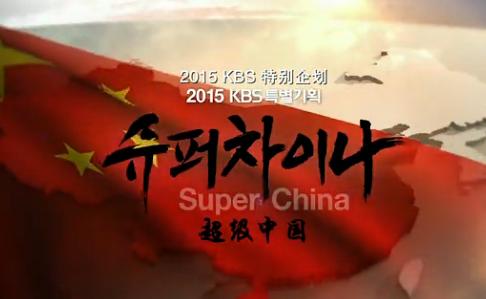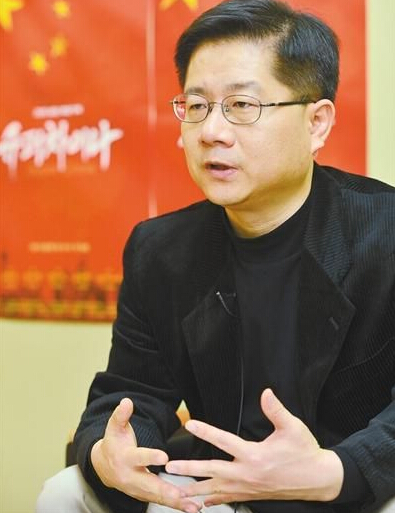A seven-episode documentary called “Super China” has earned critical praise and large television audiences in South Korea.
The Korean Broadcasting System documentary, produced by PARK, Jin-Bum, a graduate of the Global Business Journalism Program at the Tsinghua School of Journalism and Communication, is designed to help Koreans understand China in detail, including its demographics, economy, resources, geography, military diplomacy and cultural soft-power.

The audience for the seven-part series on the Korean public TV network was about twice the size of an average documentary, according to the Xinhua news agency. Ratings of one episode out of seven showed that 10 percent of Korean television viewers watched “Super China,” compared to the average documentary audience of 5 percent.
“The high ratings that the documentary won demonstrate how much South Korean audiences are interested in China,” said Park, who has worked as a journalist in China for several years. “We believe that we aired the documentary at the right time.”
The KBS documentary, which Park calls a comprehensive work designed to enrich South Korean people’s understanding of China, has been described by admirers as the definitive “encyclopedia” for South Koreans to learn more about China, from its rich history to its rapid economic growth of recent decades. Some reviewers have called it insufficiently critical of China.
Park said “Super China” has helped to satisfy a profound curiosity in Korea about its neighbor and economic partner.
“The initial aim of the production was to provide a framework for deeper understanding of China,” he said.
Park said many South Koreans have an understanding of China based on small pieces of information they have received in differing forms.
“I believe that this documentary will be helpful to fill the gap,” Park said.
The documentary features interviews with international scholars such as Professor Joseph Nye of Harvard University and John J. Mearsheimer, the R. Wendell Harrison Distinguished Service Professor of Political Science at the University of Chicago, and Prof. Hu Angang & Prof. Yan Xuetong of Tsinghua University. Nye is famous for his work on introducing the concept of “soft power” in international relations theory. Mearsheimer is the author of, “Why Leaders Lie: The Truth about Lying in International Politics.”
“Super China” also includes the voices of government officials, business executives and members of the general public – something Park underscores with pride.
“This particular part also makes it authentic,” he noted.
The production team, including Park, has already travelled to more than twenty countries, including the United States, Argentina and Kenya, showing the documentary and sharing their insights about China.
“China’s influence around the world is on the upswing,” Park said.

Some analysts in China hope the documentary will be a bridge to connect South Koreans to China and will eventually help to strengthen the people-to-people relationship between the two countries.
Park is unfazed by criticism of the documentary. As China Daily wrote, “That it was complimentary of China’s political system and the leadership of the Communist Party of China led to some interpreting the documentary as China-friendly propaganda or envy for China’s rising national power.”
On the other hand, some Korean academics have interpreted the documentary as a dark depiction of a “Chinese threat.” Park made it clear that he and his team welcome all positive and negative feedback from the audiences.
“The production team will work more on exploring China and all aspects of it in greater detail in the future,” Park said. (by Bhoj Raj Poudel)

